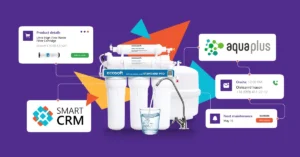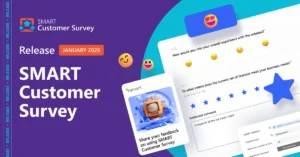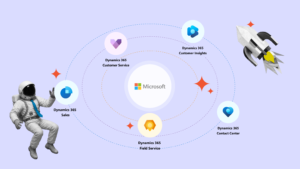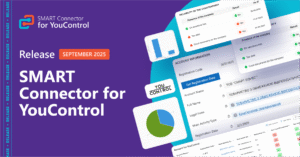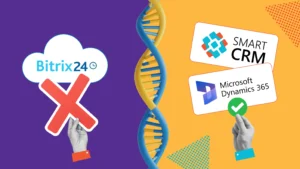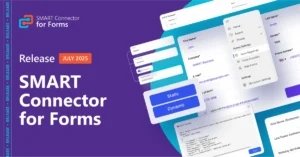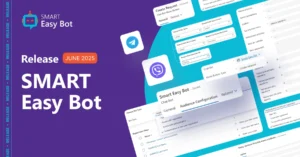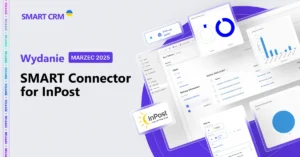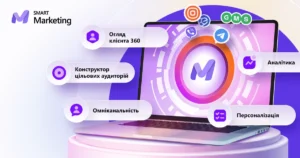System CRM dla marketingu: kluczowe zalety i korzyści z wdrożenia

In the era of information overload and increased competition, the role of marketing is constantly growing. Ensuring market penetration, increasing customer loyalty, and maximizing profits are just some of the tasks facing marketing departments today. In addition, modern consumers are becoming more and more demanding, expecting a personalized approach, customized offers and high-quality service.
To cope with these challenges, marketers are looking for new technologies and tools. One such solution is the implementation of a CRM system (Customer Relationship Management) in the company’s marketing stack.
In this article, we will discuss why a CRM system has become a necessity for modern marketing and how it can provide a competitive advantage to your business.
Relevance in numbers
According to the specialized publication martech.zone, as of 2023, a CRM system is considered the fastest-growing digital marketing software. And by 2029, the total market for CRM programs is expected to reach $146 billion (source: Fortune Business Insights).
Regarding the relevance of the CRM system in the future, we have the following statistics: almost 80% of marketing executives believe that the use of CRM technologies will soon go beyond sales, and customer service tasks.
The importance of CRM for marketing
In this section, we’ll take a closer look at why a CRM system is an extremely important tool for marketing departments and how it contributes to success in a competitive business environment.
1. Increase in customer engagement through personalization
One of the key benefits of CRM for marketing is the ability to create personalized communications with customers. Marketers have long recognized that a one-size-fits-all approach to all customers no longer works. Modern consumers expect companies to provide an individualized approach, and CRM provides an opportunity to provide it.
The system allows you to collect and analyze customer data, including their purchases, preferences, demographics, and other valuable information. With this data, specialists can create individualized marketing messages that best meet the needs and interests of each client. This increases the level of customer engagement and contributes to higher conversions.
Example: A customer receives an email with a special offer for a product they previously viewed on the company’s website. This personalized offer significantly increases the likelihood of a purchase.
2. Data analysis and improvement of marketing strategies
CRM helps marketers collect and analyze large amounts of data about customers and their interactions with the company. Such data analysis allows you to identify marketing trends, predict changes in demand, and develop strategies that best suit market conditions.
Marketers can use data from the system to identify customer purchase patterns, determine the most profitable audience segments, and optimize advertising budgets. In addition, analyzing data from CRM helps identify weaknesses in marketing campaigns and further optimize them.
Example: CRM data analysis has shown that a certain product is selling well after receiving reviews on social media. The marketing department decided to focus more efforts on creating a strategy for attracting customer reviews.
3. Increase in customer loyalty through effective marketing communications
CRM helps companies maintain and develop relationships with their customers. With this solution, marketers can track customer interactions with the brand, send regular updates and special offers, and respond to customer requests in a timely manner.
Increasing customer loyalty is a key aspect of improving the results of marketing activities. Customer trust and positive attitudes toward a brand can lead to repeat purchases and recommendations, which are of great value to a business.
Example: A company provides customers with a personal account where they can view their purchase history and receive special bonuses and discounts. This helps to increase customer loyalty and brand loyalty.

Key functions of CRM for marketing
CRM for marketing provides a variety of features and capabilities that help optimize marketing strategies and increase business efficiency. Here are the key features of the system that play an important role in marketing:
- Customer database management
- One of the main functions of CRM for marketing is to store and manage a customer database. This database contains information about customers, including their contact details, purchase history, interactions with the company, interests, and much more. Marketers can use this data to personalize marketing campaigns and provide more effective customer interactions.
- Audience segmentation
- The system allows marketers to divide the audience into different segments according to various criteria, such as demographics, purchases, behavior, and other parameters. This allows you to create marketing messages and offers that best meet the needs and interests of each segment.
- Tracking customer interaction with the brand
- A CRM solution allows you to track all customer touchpoints with the brand, including website visits, social media interactions, email opens, and more. This helps marketers understand how customers interact with the brand and how to improve this interaction.
- Analyzing customer feedback and comments helps identify the weaknesses and strengths of marketing campaigns and teaches the team to adapt their strategies based on real customer needs.
- These key features of a customer relationship management system help marketers create more effective and personalized marketing strategies, which leads to higher conversions and better customer relationships.
6 steps to successful CRM implementation for marketing
Choosing the right solution is an important task that can significantly improve the effectiveness of marketing strategies. To successfully choose a CRM, we recommend following certain steps and recommendations:
A comprehensive SMART CRM platform with a separate solution for Marketing
SMART CRM is a comprehensive platform for B2B, B2C sales, marketing, and service based on Microsoft Power Platform technology. The platform consists of several solutions that can be implemented separately or together. Namely:
SMART Sales: for automating the B2B sales process
SMART Order Management: for registering and processing orders in B2C
SMART Customer Care: for registering and processing customer requests for service
and specialized SMART Marketing for managing omnichannel marketing communications with your customers. Let’s talk about it in more detail:
Cechy rozwiązania SMART Marketing
- Zarządzanie bazą klientów
- 360-stopniowy widok klienta, przechowywanie całej historii komunikacji w jednym systemie i wykorzystywanie danych osobowych w działaniach marketingowych.
- Zarządzanie komunikacją
- Z możliwością zarządzania mailingami w różnych kanałach w jednym systemie i inicjowania kampanii mailingowych poprzez Email/Viber/SMS/Telegram do grupy docelowej utworzonej w CRM.
- Automatyzacja marketingu wielokanałowego
- Możliwość usystematyzowania treści za pośrednictwem dostępnych kanałów komunikacji i śledzenia każdej interakcji z klientem.
- Kreator odbiorców docelowych
- Buduje próbkę odbiorców docelowych do wykorzystania w działaniach marketingowych i tworzy segmenty mailingowe na podstawie wcześniejszych danych.
- Zarządzanie treścią
- Możliwość tworzenia i podglądu szablonów w systemie CRM, wygodne przechowywanie obrazów oraz kreator dynamicznych parametrów personalizacji.
- Pojedyncze miejsce pracy z analityką i raportowaniem
- Z pulpitem nawigacyjnym i planem aktywności dla kierownika i menedżera
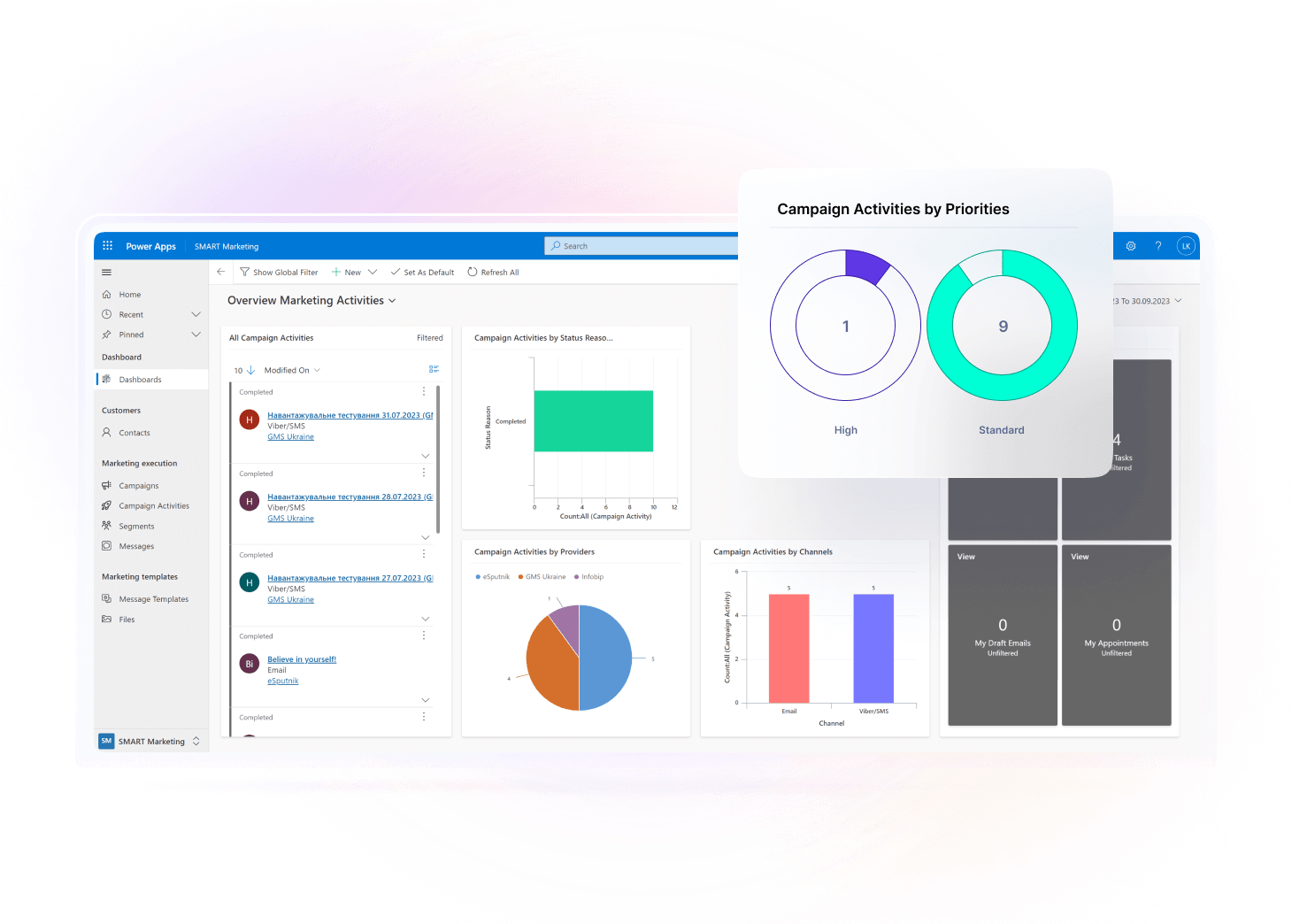
Kolejną kluczową zaletą rozwiązania jest możliwość podłączenia odpowiednich konektorów i modułów. Wśród nich:
SMART Connector for Infobip
Do masowych i triggerowanych kampanii SMS/Viber z analizą ich statusu i wyników.
SMART Connector for GMS
Do masowych i triggerowanych kampanii SMS/Viber z analizą ich statusu i wyników.
SMART Connector for eSputnik
Do masowych i triggerowanych kampanii e-mail przez eSputnik z analizą ich statusu i wyników.
And SMART Easy Bot module with a user-friendly interface for easy and comfortable management of Viber and Telegram chatbots.
A także moduł SMART Easy Bot z przyjaznym dla użytkownika interfejsem do łatwego i wygodnego zarządzania chatbotami Viber i Telegram.
